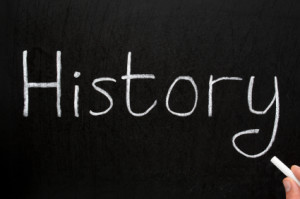Do These Three Things Tonight to Improve Your Leadership Context
Maybe it’s the holidays…maybe it’s the winter season. The cards with pictures of old friends and family. The darkness and solitude of memories. Remembering the past and its accompanying emotions should be a more regular and intentional activity. This anchoring to history holds both personal and business lessons for us as leaders—if we’re willing to unlock them.
In his recent Harvard Business Review blog post reflecting on the life of Nelson Mandela, Bhaskar Chakravorti highlighted how important it is for leaders to understand historical context. For example, in the mid-1990s, South Africa surprisingly prioritized its Internet connectivity with Malaysia and Europe over its African neighbors because of cultural, relational and structural ties. Awareness of this context was central to the ability of telecommunication network pioneers to influence and lead.
Reading a new biography of Dale Carnegie has adjusted my understanding of his legacy in our company’s offerings today. The comparison between then and now has given me new historical context and, along with it, new clarity around our contemporary value proposition. It’s also increased my understanding of why our organization existed in the first place: At a time when rapid expansion of consumerism and organizational bureaucracy made speaking up in meetings and influencing others a critical skill, Dale Carnegie helped people build people’s courage and effectiveness to become successful. What incredible context this provides when I think about our “story” as a business and the value we provide.
Greater understanding of historical context also reminds me to:
Stay calm – this too shall pass
Be true – remember who you are
Be thankful – have a heart of gratitude
All of these are essential to good leadership.
If you’re not sure where to start, here are three things you can do tonight to cultivate a historical context in your own leadership.
1. Study old pictures. I’ve spent the past two nights on the floor of my basement going through old boxes of photos. Oh the nostalgia – traditions with my family growing up, Scotty and I starting a college friendship that’s led to a business partnership, developing my faith on a backpacking trip in high school with Roers and learning about teamwork rowing crew. These memories are who I am and it makes me grateful.
2. Listen to old music. We’ve balanced “Nat King Cole (Holiday)” in our office with “Eagles” Pandora. The latter has surfaced so many fun and endearing stories across our workspace. We’ve heard about old boyfriends, attempts to run away from home, college parties and emotional heartache. My colleague Pat just listed her favorite albums and then said, “So much of music connects to where you were in life. My favorite albums come from important times in my life.” Knowing this about ourselves and each other helps us to live, lead and learn.
3. Read about and talk to those with histories longer than our own. Understanding historical context isn’t just about us. We come from community and stand on the shoulders of others. Seniors and biographies have lessons for today, particularly the ones that tell us something about our current context. How did it get to be this way? Why are those laws in place? What was the original purpose of this? Neglecting our historical context untethers us from critical leadership insights.
How do you remember what you need to know and feel as a leader?










Comments are closed here.